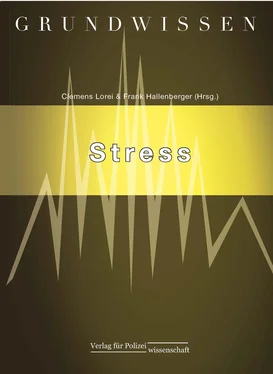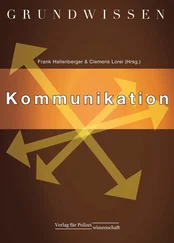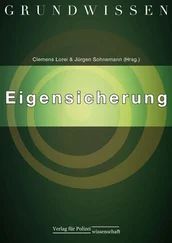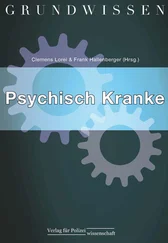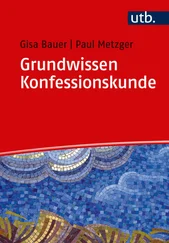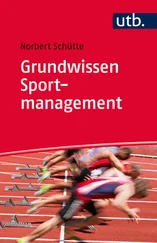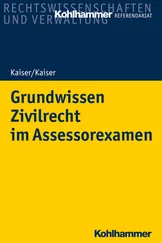Grundwissen Stress
Здесь есть возможность читать онлайн «Grundwissen Stress» — ознакомительный отрывок электронной книги совершенно бесплатно, а после прочтения отрывка купить полную версию. В некоторых случаях можно слушать аудио, скачать через торрент в формате fb2 и присутствует краткое содержание. Жанр: unrecognised, на немецком языке. Описание произведения, (предисловие) а так же отзывы посетителей доступны на портале библиотеки ЛибКат.
- Название:Grundwissen Stress
- Автор:
- Жанр:
- Год:неизвестен
- ISBN:нет данных
- Рейтинг книги:5 / 5. Голосов: 1
-
Избранное:Добавить в избранное
- Отзывы:
-
Ваша оценка:
- 100
- 1
- 2
- 3
- 4
- 5
Grundwissen Stress: краткое содержание, описание и аннотация
Предлагаем к чтению аннотацию, описание, краткое содержание или предисловие (зависит от того, что написал сам автор книги «Grundwissen Stress»). Если вы не нашли необходимую информацию о книге — напишите в комментариях, мы постараемся отыскать её.
Grundwissen Stress — читать онлайн ознакомительный отрывок
Ниже представлен текст книги, разбитый по страницам. Система сохранения места последней прочитанной страницы, позволяет с удобством читать онлайн бесплатно книгу «Grundwissen Stress», без необходимости каждый раз заново искать на чём Вы остановились. Поставьте закладку, и сможете в любой момент перейти на страницу, на которой закончили чтение.
Интервал:
Закладка:
Judge, T. a., Erez, A., Bono, J. E. & Thoresen, C. J. (2003). The core self-evalutations scale: Development of a measure. Personnel Psychology, 56, 303-331.
Kammeyer-Mueller, J. D., Judge, T. A. & Scott, B. a. (2009). The role of core selfevaluations in the coping process. Journal of Applied Psychology, 94, 177-95.
Karasek, R. A. (1979). Job Demands, Job Decision Latitude, and Mental Strain: Implications for Job Redesign. Administrative Science Quarterly, 24, 385-408.
Kirschbaum, C. (1991). Die Messung von Cortisol im Speichel – Eine Methode der Biologischen Psychologie. Bern: Huber.
Kirschbaum, C. & Hellhammer, D. H. (1999). Hypothalamus-Hypophysen-Nebennierenridenachse. In C. Kirschbaum (Hrsg.), Enzyklopädie der Psychologie, Biologische Psychologie, Serie I, Band 3, Psychoendokrinologie und Psychoimmunologie (S. 79-140). Göttingen: Hogrefe.
Kivimäki, M., Ny berg, S. T., Batty, G. D., Fransson, E. I., Heikkilä, K., Alfredsson, L., … Theorell, T. (2012). Job strain as a risk factor for coronary heart disease: A collaborative meta-analysis of individual participant data. Lancet, 380, 1491-1497.
Kudielka, B. M., Von Känel, R., Gander, M.-L. & Fischer, J. E. (2004). Effort-reward imbalance, overcommitment and sleep in a working population. Work & Stress, 18, 167-178.
Kondo, N., Sembajwe, G., Kawachi, I., van Dam, R. M., Subramanian, S. V. & Yamagata, Z. (2009). Income inequality, mortality, and self rated health: Meta-analysis of multilevel studies. BMC Public Health, 339, 1-9.
Lazarus, R. S. & Folkmann, S. (1984). Stress, appraisal and coping. New York: Springer.
LePine, J. A., Podsakoff, N. P. & LePine, M. A. (2005). A meta-analytic test of the challenge stressor – hindrance stressor framework: An explanation for inconsistent relationships among stressors and performance. Academy of Management Journal, 48, 764-775.
Luchman, J. N. & González-Morales, M. G. (2013). Demands, control, and support: A meta-analytic review of work characteristics interrelationships. Journal of Occupational Health Psychology, 18, 37-52.
Lundberg, U. & Hellström, B. (2002). Workload and morning salivary cortisol in women. Work & Stress, 16, 356-363.
Marmot, M., Siegrist, J., Theorell, T. & Feeny, A. (1999). Health and the psychosocial environment at work. In Marmot, R. & Wilkinson, R. (Hrsg.), Social Determinants of Health. Oxford, UK: Oxford University Press.
Meurs, J. A. & Perrewé, P. L. (2011). Cognitive activation theory of stress: An integrative theoretical approach to work stress. Journal of Management, 37, 1043-1068.
Michaud, K., Matheson, K., Kelly, O. & Anisman, H. (2008). Impact of stressors in a natural context on release of cortisol in healthy adult humans: A meta-analysis. Stress, 11, 177-197.
Ng, T. W. H., Sorensen, K. L. & Eby, L. T. (2006). Locus of control at work: A metaanalysis. Journal of Organizational Behavior, 27, 1057-1087.
Park, H. I., Monnot, M. J., Jacob, A. C. & Wagner, S. H. (2011). Moderators of the relationship between person-job fit and subjective well-being among Asian employees. International Journal of Stress Management, 18, 67-87.
Podsakoff, N. P., LePine, J. A. & LePine, M. A. (2007). Differential challenge stressorhindrance stressor relationships with job attitudes, turnover intentions, turnover, and withdrawal behavior: A meta-analysis. Journal of Applied Psychology, 92, 438-54.
Rosenberg, M. (1965). Society and the adolescent self-image. (Princeton University Press, Ed.). Princeton, NJ.
Rotter, J. B. (1966). Generalized expectancies for internal versus external control of reinforcement. Psychological Monographs, 1(609).
Schultz, W. (2006). Behavioral theories and the neurophysiology of reward. Annual review of psychology, 57, 87-115.
Segerstrom, S. C. & Miller, G. E. (2004). Psychological stress and the human immune system: A meta-analytic study of 30 years of inquiry. Psychological Bulletin, 130, 601-630.
Selye, H. (1950). Stress and the General Adaption Syndrome. British Medical Journal, 1383-1392. Retrieved from http://www.bmj.com/content/1/4667/1383.full.pdf
Selye, H. (1956). The stress of life (rev. ed.). New York, NY: McGraw-Hill.
Selye, H. (1974). Stress without distress. Philadelphia, PA: J.B. Lippincott Co.
Selye, H. (1976a). Forty years of stress research: principal remaining problems and misconceptions. Canadian Medical Association Journal, 115, 53-56.
Selye, H. (1976b). Stress in health and disease. Oxford, UK: Butterworths.
Semmer, N. K. (2003). Individual differences, work stress and health. In Schabracq, M. J., Winnubst, J. A. M. & Cooper, C. L. (Hrsg.), Handbook of Work and Health Psychology (S. 51-86). Chichester: Wiley.
Semmer, N. K., Jacobshagen, N. & Meier, L. L. (2006). Arbeit und (mangelnde) Wertschätzung. Wirtschaftspsychologie, 2/3, 87-95.
Semmer, N. K., Jacobshagen, N., Meier, L. L. & Elfering, A. (2007). Occupational stress research: The “Stress-as-Offence-to-Self” perspective. In Houdmont, J. & MyIntyre, S. (Hrsg.), Occupational Health Psychology: European Perspectives on Research, Education and Practice (Vol. 2, S. 43-60). Maia, Portugal: ISMAI Publishers.
Siegrist, J. (1996). Adverse health effects of high-effort/low-reward conditions. Journal of Occupational Health-Psychology, 1, 27-41.
Siegrist, J. (2002). Effort-reward Imbalance at Work and Health. In Perrewe, P. and Ganster, D. (Hrsg.), Research in Occupational Stress and Well Being, Vol. 2: Historical and Current Perspectives on Stress and Health (S. 261-291). New York: JAI Elsevier.
Siegrist, J., Starke, D., Chandola, T., Godin, I., Marmot, M., Niedhammer, I. & Peter, R. (2004). The measurement of effort-reward imbalance at work: European comparisons. Social Science & Medicine, 58(8), 1483-1499.
Söderfeldt, M., Söderfeldt, B., Ohlson, C.-G., Theorell, T. & Jones, I. (2000). The impact of sense of coherence and high-demand/ low-control job environment on self-reported health, burnout and psychophysiological stress indicators. Work & Stress, 14, 1-15.
Sonnentag, S. & Frese, M. (2003). Stress in organizations. In W. C. Borman, D. R. Ilgen, & R. J. Klimoski (Hrsg.), Comprehensive Handbook of Psychology, volume Twelve: Industrial and Organizational Psychology (S. 453-491). Hoboken: Wiley.
Ohly, S., Sonnentag, S. & Pluntke, F. (2006). Routinization, work characteristics and their relationships with creative and proactive behaviors. Journal of Organizational Behavior, 27, 257-279.
Spector, P. E. (2002). Employee control and occupational stress. Current Directions in Psychological Science, 11, 133-136.
Stocker, D., Jacobshagen, N., Semmer, N. K. & Annen, H. (2010). Appreciation at work in the Swiss Armed Forces. Swiss Journal of Psychology, 69, 117-124.
Szabo, S., Tache, Y. & Somogyi, A. (2012). The legacy of Hans Selye and the origins of stress research: A retrospective 75 years after his landmark brief “letter” to the editor of nature. Stress, 15, 472-48.
Van der Colff, J. J. & Rothmann, S. (2009). Occupational stress, sense of coherence, coping, burnout and work engagement of registered nurses in South Africa. SA Journal of Industrial Psychology, 35, 1-10.
Wang, Q., Bowling, N. A. & Eschleman, K. J. (2010). A meta-analytic examination of work and general locus of control. Journal of Applied Psychology, 95, 761-768.
Van der Doef, M. & Maes, S. (1999). The Job Demand-Control (-Support) Model and psychological well-being: A review of 20 years of empirical research. Work & Stress, 13, 87-114.
Warr, P. B. (2007). Work, happiness, and unhappiness. Mahwah, NJ: Lawrence Erlbaum Associates.
Watson, D. (2000). Mood and temperament. New York, NY: Guilford.
Widmer, P. S., Semmer, N. K., Kälin, W., Jacobshagen, N. & Meier, L. L. (2012). The ambivalence of challenge stressors: Time pressure associated with both negative and positive well-being. Journal of Vocational Behavior, 80, 422-433.
Читать дальшеИнтервал:
Закладка:
Похожие книги на «Grundwissen Stress»
Представляем Вашему вниманию похожие книги на «Grundwissen Stress» списком для выбора. Мы отобрали схожую по названию и смыслу литературу в надежде предоставить читателям больше вариантов отыскать новые, интересные, ещё непрочитанные произведения.
Обсуждение, отзывы о книге «Grundwissen Stress» и просто собственные мнения читателей. Оставьте ваши комментарии, напишите, что Вы думаете о произведении, его смысле или главных героях. Укажите что конкретно понравилось, а что нет, и почему Вы так считаете.
